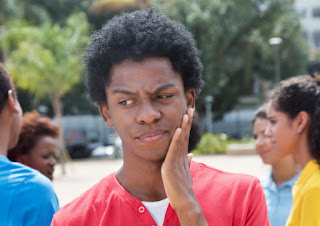Early in my youth work career, it was part of my job to help a group of about 30 middle and high school youth feel more comfortable with the outdoors. These kids had traumatizing home lives, so loving nature was not exactly their priority, but I was determined. One day, a few of the kids started freaking out about some ants. I insisted they were just ants; they insisted they were fire ants. Isn’t that just like a kid? To prove myself, I let the ants crawl onto my hand. I learned two things that day: 1) Fire ants really do exist, and their bite really does feel like fire. 2) I was a fool, not because they were right and I was wrong, but because I had completely discounted their experience over my own. Isn’t that just like an adult?
Eventually I saw how I could have approached the situation with more cultural humility. I could have learned from their experience if I had asked. This would have helped me earn their trust—something I needed first before I could influence their outdoor comfort level.
As I’ve shared in a previous blog, how we engage with young people matters. Do we engage with them as children who don’t know as much as we do, or as fellow human beings with valuable experience? To really value youth requires a level of cultural humility.
At the heart of cultural humility is being honest and genuinely caring and curious about others. Here are some important things we can do to build our cultural humility with youth:
- Build understanding of young people’s experiences. This is only possible if we listen to what they have to say. At that same alternative school, I made the same mistake again when I discounted their experience with racism. Because I hadn’t experienced it myself as a white woman, I dismissed what they told me. And because I’m a slow learner, it happened a third time before I remembered the fire ants and finally shut up and listened.
- Exercise self-reflection. Understanding who you are and who you want to be helps you identify the steps you can take to get there. Without self-reflection, growth takes longer. Cultural humility is about continually figuring ourselves out while understanding that others are still figuring it out too.
- Recognize your own and others’ power and privilege. I’m not talking about the kind we earn by working hard, but unearned power or privilege that we have because of how society views us or the circumstances we find ourselves in. For instance, women are interrupted 33% more than men; youth of color see fewer role models in middle and high income jobs; non-gender conforming youth more often feel unsafe being themselves; rural Americans are 12% less likely than other Americans to have broadband Internet at home. Building this understanding helps us advocate for each other.
- Build your comfort with not knowing. We can’t anticipate everything that may happen or know everything about another person or culture. Fortunately, we don’t have to, and admitting when we don’t know something can actually help us build supportive relationships. When we acknowledge that we don't know something, we open the door to learning. And this supports positive youth development.
- Adapt the existing culture of your program. Simply inviting youth in isn’t enough. We might have to change what we usually do to create a more welcoming environment. We have to be willing to learn from each other to co-create new traditions.
What are you doing to practice cultural humility and value youth experience?
You are welcome to comment on this blog post. We encourage civil discourse, including spirited disagreement. We will delete comments that contain profanity, pornography or hate speech--any remarks that attack or demean people because of their sex, race, ethnic group, etc.--as well as spam.

Thank you Jessica for your words, "Build your comfort with not knowing". I remember when I was younger I was determined that I was going to know everything. I had heard early on that "they can't take what you learn/your education away from you." Then as I studied, I realized there will always be more to learn. I think that is how we have to think about culture and diversity. We can't wait till we know everything about a group or culture, because we will never know everything about anything. I take comfort in the fact that "admitting when we don’t know something can actually help us build supportive relationships". It's during this time of being vulnerable that we can sincerely listen, trust and grow our relationships while envisioning 4-H programs together that meet the needs of the youth.
ReplyDeleteThank you so much for your comments, Carrie. You're right--we can't wait to learn everything before we try something, because there is no such thing as knowing everything. Sometimes we need to take the risk in making a mistake. But we learn so much from mistakes--with self-reflection, we can change those mistakes from regret to growth.
Delete